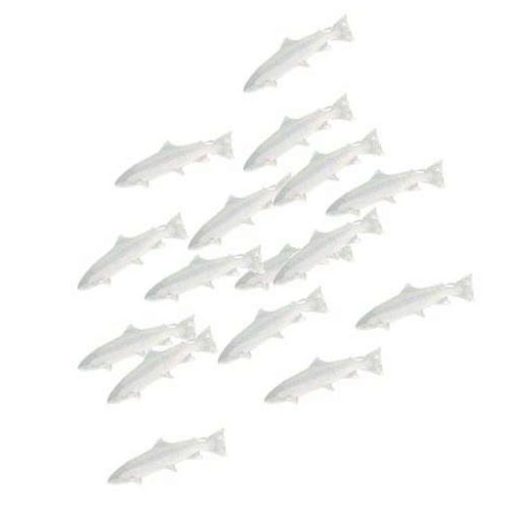We are an anthropological digital video production unit at the University of British Columbia in Vancouver. Our primary focus is film production and research. The Film Unit draws upon the combined strengths of anthropologists, filmmakers, students, and community members.
We use the language of documentary video to explore issues of environmentally and socially responsible resource use that prioritizes collaborative community-based practise. The videos are an active research tool; a catalyst for conversation and for deeper enquiry. They are also end products – broadcast-quality videos for use in high-school and university classrooms, conferences, workshops, and film festivals.
Many of our films are accompanied by turn-key curriculum kits (broken link) that fulfill BC high-school intended learning outcomes.

The Ethnographic Film Unit (EFU) is one of several faculty run labs based in the Department of Anthropology at UBC. These labs are focussed around individual faculty members’ research interests and often support graduate student research and, when able, the research of other faculty and students on or even off campus. The place of laboratories as units of research is more common among our colleagues in sciences, but as our long-standing history of laboratories in the Department of Anthropology shows it is not something foreign to us.
The EFU had its roots in a Forest Renewal of BC (FRBC) funded extension project in 2001 (FRBC was a provincial initiative dedicated to high quality applied research related to forest dependent communities and enhancing BC”s forestry sector). The objective of our extension project was to organize youth oriented workshops that drew upon a previous FRBC project (First Nations Involvement in the Forest Sector, 1998-1999). In the middle of planning the workshops we stumbled upon the idea of trying to create a more lasting impact then simply holding a youth workshop. What emerged became an integrated set of high school lesson plans (broken link), short documentaries, and a special issue published in the Canadian Journal of Native Education (broken link). A lot of mistakes were made with this first foray into filmmaking, but the experience laid the basis for what became a decade long collaboration between myself (C.Menzies), filmmaker Jennifer Rashleigh, and UBC alumna Dr. Caroline Butler.
Right from the start the EFU has been a production and research unit funded solely by research grants. While it would have been wonderful to receive some form of core institutional funding we have never been successful in securing dedicated funds to operate the ethnographic film unit. This creates a lot of administrative and logistical headaches. When funding is in place we gear up and more gets done; when there is no funding, things are mothballed and projects drag along waiting for the next grant. This kind of funding makes it difficult to provide any kind of more generalizable services beyond the immediate core of the unit. Just the same over the years the film unit has tried to meet the needs of others when possible and, as we were made aware of them.
The core idea behind the ethnographic film unit was a desire to link Indigenous sensibilities to anthropological practice in collaboration with members of participating communities. Elsewhere I have described the three kinds of films we have produced: traditional narrative documentaries , community videos, and video vignettes. These three very different kinds of filmic voice can be produced with relative ease today given the flexibility of digital editing, sampling, and resampling. This makes it possible for us to take a stance –in the form of our narrative documentaries and simultaneously release control of the narrative via a community driven video or even more radically by spinning vignettes free for others to sample, reorder, and contextualize according to their own whims.
The core team of Rashleigh, Buttler, and myself has led most of the film work we have produced, but not all of it. Dr. Jennifer Wolowic directed For Our Street Family while a master’s student in the anthropology graduate program. Her film emerged, in part, out of her field school project in a course taught by Butler and myself in 2007 and was a central component of her MA research.
Dr. Denise N. Green, already an accomplished filmmaker her own right before she joined our doctoral program in Anthropology, embedded several films directed in collaboration with Nuu-chah-nulth First Nations communities exploring textiles, language, identity and Aboriginal title while a member of the ethnographic film unit: Mamuu : To Weave/To Work; Tsawaayuus – Rainbow Gardens; Yacpanachshi-althin (Let’s go for a walk); Histakshitl Ts’awaatskwii (We Come From One Root).
Equipment and Facilities
The Film Unit has a production lab in the Anthropology-Sociology Building. The lab is dedicated to core productions of the the Film Unit and the teaching of ANTH 478 (when offered). The Film Unit has HD and SD digital tape camera kits that members of the film unit and associated members of the Department of Anthropology may use. Priority of use: (1) Core Film Unit projects (2) ANTH 478 projects (3) Film Unit member projects (4) Department of Anthropology member projects. Details on lab access and equipment bookings can be found on the services page.
Film Unit Membership
Interested in joining the FIlm Unit? Check our people page for details.

